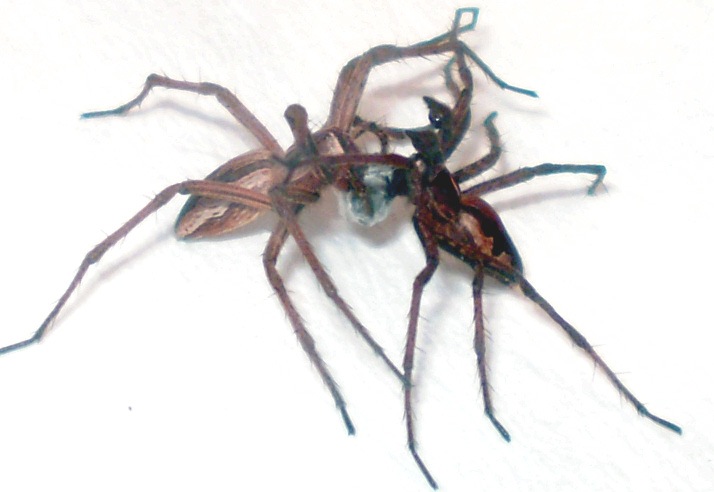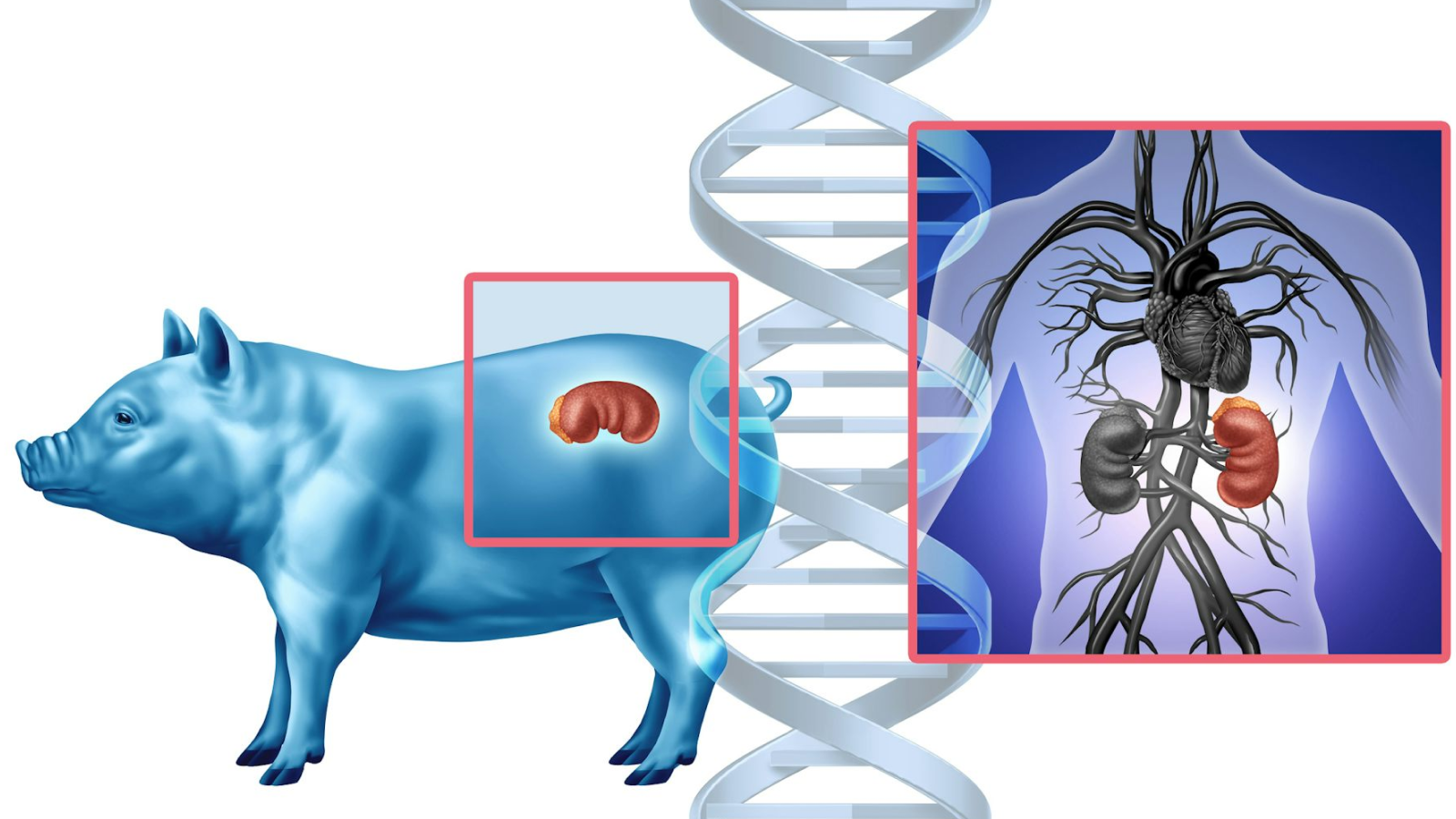8-Legged Sex Trick? Spiders Give Worthless Gifts, Play Dead

Male nursery web spiders sometimes "pay" for mating using worthless gifts, with a new study finding the gals are not impressed with the empty offerings.
These gifts serve as decoys: Worthless bits of flower, cotton or ant husks wrapped in silk that serve only to distract the female while the males have their way. Another trick? If not satiated, males play dead until the female thinks she has gotten away, and then he wakes up and grabs her for another go.
"The nuptial gift (an insect prey wrapped in silk) is a very important trait for mating success," study researcher Maria Jose Albo, a researcher at Aarhus University in Denmark and the Instituto de Investigaciones Bioloìgicas Clemente Estable in Uruguay, told LiveScience in an email. "Males with gifts increase the chances to be accepted by females and also prolong copulation duration, males without gifts are normally rejected or obtain short copulations."
Albo and colleagues are still perplexed as to how the gifts benefit the mama spider or her spiderlings.
Gift giving spider
The nursery web spider, Pisaura mirabilis, is a common European spider species, and typically lives in grass meadow. During their second year, male spiders search and compete for mates and present them with a nuptial gift. During the mating the female eats the gift and the male inserts special organs called pedipalp, which transfers the sperm.
The longer they insert the pedipalp, the more sperm they transfer. In the wild, the spiders mate multiple times, but in the lab they were only allowed to mate once. [The Weirdest Animal Penises]
Get the world’s most fascinating discoveries delivered straight to your inbox.
In the wild, previous research has found that about 62 percent of gifts from male nursery web spiders contained fresh prey, while the rest, 38 percent, contained empty insect husks. "Since the chances to obtain a mating without gift are very low, males are under strong pressures to offer something, and they decide to wrap any item in silk, no matter the nutritive value, just to obtain a successful mating," Albo said.
The researchers collected wild spiders and studied four conditions, each with 20 spiders, in the lab: spiders without gifts, those with worthless gifts, those with gifts of tasty, dead flies, and those with gifts of protein-enriched flies. The virgin male spiders were given the gift to wrap up for their potential mate once they started their courtship ritual, and were then presented with a virgin female.
The males wrap their gift with silk, so much so the females couldn't tell what was inside. The researchers noted that while the females examined the gifts, the males spent their time mating with her. Those without gifts were the least successful (only 1 out of 6 got some lady-spider action), while even those presenting worthless gifts did better, 12 out of 13 mated — about the same success rate as the males offering tasty fly gifts.
The differences between the groups showed up in the mating time. Female spiders disengaged from mating quicker with the males that gave worthless gifts; once they figured out they were being duped, they moved on.
Feeding the unborn and mating with the undead
The researchers thought that the nutrients included in an actual gift might play a role in the female's health. The extra protein might make for healthier babies or longer-lived moms. In the end, the females given worthless gifts ended up having fewer, but larger spiderlings, while those given fly gifts had larger numbers of smaller spiderlings. There were no differences in the females' life spans.
In the wild these spiders are polygamous, mating with many different mates. Perhaps the single gift like the one used in the lab experiments wasn't enough, but multiple gifts might have an impact on their (or their offspring's) health.
These gift-giving spiders show another odd trait. When the males don't get their fill of mating they continue to hold onto their gift and play dead; they are dragged along by the female as she tries to make off with her tasty fly bite. This behavior, called thanatosis, is unique to this species of spider. When the female stops dragging him, he revives and grabs her for another round of mating.
"Feigning death confers to males the opportunity to continue mating and increase the chances to transfer more sperm," Albo said. "In our study, females mating with worthless gifts ran away without the gift and there were no chances for the male to perform thanatosis and therefore to prolong sperm transfer, suggesting that females realized gift content and limited the amount of sperm transferred by those males."
The study was published Sunday (Nov. 13) in the journal BMC Evolutionary Biology.
You can follow LiveScience staff writer Jennifer Welsh on Twitter @microbelover. Follow LiveScience for the latest in science news and discoveries on Twitter @livescience and on Facebook.
Jennifer Welsh is a Connecticut-based science writer and editor and a regular contributor to Live Science. She also has several years of bench work in cancer research and anti-viral drug discovery under her belt. She has previously written for Science News, VerywellHealth, The Scientist, Discover Magazine, WIRED Science, and Business Insider.



